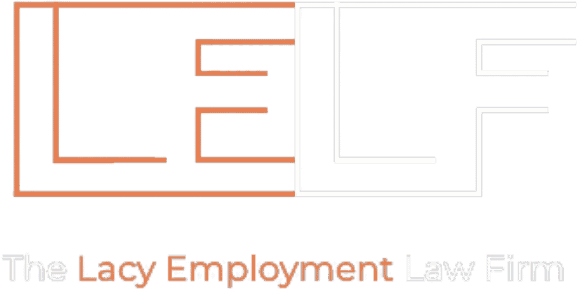We see it all the time. A person thinks that they have been wrongfully terminated. But they wonder whether they have a case worth pursuing.
First, they might wonder whether they can even win this type of case. And if they win, how much money will they actually get.
But most people are more concerned with the hassle. People do not like things in their life to drag on.
Unfortunately, lawsuits tend to take time. But how much time? How long does a wrongful termination case take?
The answer depends on the person, the case, and the company. I would say, however, that you can expect for a wrongful termination case to take at least a year.
What is Wrongful Termination?
Employment in the United States is at will. At-will means that your employer can fire you for any non-illegal reasons. Illegal reasons are those that violate the various employment laws.
Employment Laws that Protect Against Wrongful Termination
Congress passed sweeping civil rights legislation in 1964. The Civil Rights Act of 1964 prohibited discrimination based on race, color, religion, sex, national origin, and later sexual orientation.
Specifically, Title VII of the Civil Rights Act of 1964, commonly referred to as Title VII, protects employees and job applicants from employment discrimination based on race, color, religion, sex, and national origin.
After Title VII, Congress passed other employment legislation.
Today, you are protected against unlawful terminations based on:
- Sex
- Race
- Religion
- Ethnicity
- Age
- National Origin
- Disability
- Marital status
- Pregnancy
- Genetic information
If your employer fires you for any of these illegal reasons, they have wrongfully terminated you. And you might have a wrongful termination case.
How Long Does a Wrongful Termination Case Take?
Wrongful termination cases do not take any set amount of time. They do, however, tend to take longer than other civil cases.
Wrongful termination cases are brought under the civil rights statutes. Under most circumstances, you will have to go through an administrative agency to file your case in court.
The administrative agency is the Equal Employment Opportunity Commission (EEOC).
Filing a Wrongful Termination Claim
To file a wrongful termination claim, you must first file a charge with the EEOC. A charge is a complaint alleging the ways in which your employer wrongfully terminated you.
After you file the charge, the EEOC will investigate. They will interview your company and witnesses within in.
They will then make a finding. If the EEOC finds that no wrongful termination occurred, then it will almost certainly give you the option to sue in federal court.
The EEOC charge process typically takes about six months to complete. You usually have to wait the full six months (180 days) — or even longer — to start your lawsuit.
Sometimes Wrongful Termination Claims End at EEOC Mediation
On occasion, the EEOC will mediate the case. This means that it will ask you and your former employer to meet. At this meeting, you will be joined by a neutral third-party. The third-party will then attempt to settle your case.
If your case settles at mediation, then it could only take a few months from the time you file the charge until you receive your settlement check.
EEOC mediations do not happen often. And they also usually end up in lower settlement amounts.
Your Case Will Take Longer if it Heads to Court
If your case does go to federal court, it’s likely that it will take a year. It all depends.
A court case from start to finish takes a year and a half to two years to conclude. This assumes that the case ends at trial. Very few cases, however, actually make it to trial. Most employment cases settle.
The length of your case will depend on how long it proceeds through court.
It takes about six months for the EEOC to investigate the charge after you file it with them. And it takes six months or so to find a lawyer, file the lawsuit, and take some discovery. Most cases settle right before or after the parties start taking depositions.
This puts us at about 3-5 months after you file your case in federal court. And about a year or so after you filed your charge with the EEOC.
I know this might seem like a long time. But there really isn’t much for you to do in this process. Your lawyer will handle the heavy lifting. That’s what you pay him or her for.
If your case does not go to trial, you will likely only need to tell your lawyer about your case, answer some questions when they arise, prepare for your deposition, and sit for your deposition.
It might be less than ten hours of your time.
How Hard is it to Win a Wrongful Termination Lawsuit?
Wrongful termination lawsuits tend to be hard to win. But it really depends on your definition of winning.
If your definition of winning is winning at trial, then you will probably lose. I’ve seen research suggesting that only 5-25% of employment cases are successful at trial.
But if you define winning as obtaining money for your lawsuit, you have a good chance.
Over 90% of these types of cases settle. If you’re settling your case, you are getting some amount of money.
And if you count getting money for your wrongful termination case as winning, then you will almost certainly win.
Wrongful termination claims are not seen as easy cases by most lawyers. But a good employment lawyer can help you recover on your wrongful termination claims.
What Happens if You Win a Wrongful Termination Case?
If you settle a wrongful termination case, you will get compensation. Your employer will be forced to pay you for the damages caused by your unlawful termination.
If you win at trial, you will get more than money. Your employer will not only have to pay you damages but also your attorney’s fees.
Most employment lawyers operate on a contingency fee basis. This means that they take a percentage of your winnings. This percentage is normally 33-40%.
They also front the costs of the litigation. This includes filing fees and the costs of depositions. If you settle or obtain a verdict at trial, your attorney will take the amount of fees and/or costs that he or she fronted out of your settlement.
On the other hand, if you win at trial, you are entitled to costs and fees. The employment statutes have fee-shifting provisions. This means that the burden of your attorney’s fees and costs shifts from you to your former employer.
This can make a big difference in the amount of compensation you get as a result of an employment lawsuit.
How Does a Wrongful Termination Lawsuit Pay
Employment law cases are not known for garnering high settlement amounts. The reason is that the damages are easily defined. The primary determinant of your damages is back pay.
This is the amount of money that you lost due to discrimination and/or employment violation. Most people, relatively speaking, do not make a tremendous amount of money.
If you make $40,000 and you did not work for a year, you’re entitled to $40,000 in back pay.
There are a few other types of damages in employment law cases.
These include:
- Back pay
- Punitive damages
- Emotional distress damages
- Lost Benefits
- Front Pay
- Attorney’s fees
Although there are many different types of damages you can obtain, back pay is usually most relevant.
The other types of damages are mostly reserved for the most egregious types of cases. An example would include sexual assault.
Also, employment cases can be hard to prove. They tend to result in he/said type of cases. Companies know this, and a lot of times they offer money to make the case go away.
I’ve seen the $40,000 number thrown out a lot for employment cases as the average settlement award.
On the one hand, this is not the type of lawsuit that will make you rich. On the other hand, employers typically pay something to make these types of cases go away.
If you think your employer wrongfully terminated you, it never hurts to consult with an employment lawyer.
Most employment lawyers give free consultations. And because they work on a contingency fee, their services will be free unless they recover from your employer.
Conclusion
No one likes to do things that take time. And no one likes to have things languish for years.
But your attorney will be doing 99% of the work. You might even forget that you have a lawsuit pending after a while. You just have to ask yourself, is it worth it to you?
If you are looking for an attorney in Philadelphia or Pittsburgh, we are here to help.



















